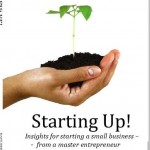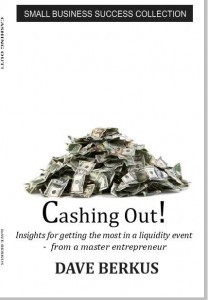By David Steakley
This week, David Steakley returns for another bite at the corporate apple, with just the right amount of tart comments that will keep this document legal for now. Read on! – DB
How do you judge a company’s prospects, if a corporate business-to-business sale has to be your game? If your company’s market is huge corporations, how do you convince investors you can crack the market, and how do you deliver?
To answer this, you have to understand the challenges of getting paperwork signed and checks issued, in a big company. You’ll notice I didn’t say “the challenges of selling,” because this is seldom the crucial challenge. I am assuming that you have an awesome product or service which cleverly solves some tough problem and promises to deliver solid ROI for the buyer.
Just to be up front, as an investor, I am allergic to companies which rely on making potentially huge sales to corporate clients. The corporate B2B sales cycle produces a harshly binary outcome: either the company dies while waiting for a corporate client to sign the paperwork and remit the funds, or else it delivers gigantic outsized sales with relatively little effort.
[Email readers, continue here…] I routinely see prospective investments which rely by their nature upon selling to corporate customers. I have learned through bitter experience that little can be predicted from analyzing the company’s product or service. Of course, you’d think the company has to have a  useful, valuable, or somewhat unusual product in order to be successful. But, from a standpoint of efficient analysis of the company’s prospects, this is not the place to start.
useful, valuable, or somewhat unusual product in order to be successful. But, from a standpoint of efficient analysis of the company’s prospects, this is not the place to start.
Big corporations are just slow to act. The time needed for decision increases as a factor of the number of people involved in the decision process. The number of people involved in the decision process varies as a factor of the amount of money involved, the number of places in the company affected by the transaction, and the duration and contractual obligations of the commitment.
I have found that the predictor of success is really extremely simple: tell me the name, phone number, birthdate and favorite brand of scotch of the senior corporate executive who is going to be your first customer, and tell me how much he is going to pay you in the next twelve months. Now, I am not saying you have to sell only to scotch drinkers, but you get my point: the predictor is your intimate knowledge of people you already know who need your product, want your product, and who know and trust you to the point that they will work hard to overcome the obstacles of closing the deal.
In other words, you have to have inside agents. You have to know, find, create, recruit, whatever, senior corporate executives who will relentlessly and stubbornly perform the unnatural acts required to close the sale.
Occasionally, I have seen success with companies getting started by using channels, i.e., other companies which are already providing or selling some product or service to your customers, who will tuck your product or service into their bag of tricks in return for a slice of the revenue. But it is very, very difficult to get a new product started this way. Once you’ve established the product, and the channels can be persuaded that your product provides them with relatively easy incremental revenues; channels are a fantastic way to scale your sales effort without fixed costs.
The great advantage of the B2B market is the potentially huge size of revenues from just one sale. Those revenues tend to be very durable, as quite often, you are getting your offerings wired into the DNA of the customer.
Before you tackle the corporate market, be sure you understand the challenges of this market, and think carefully about your product design and your sales approach, to reduce the barriers to closing sales as much as possible.
David Steakley, a past President of the Houston Angel Network, is a reformed management consultant. He is an active angel investor, and he manages several angel funds in Texas.





